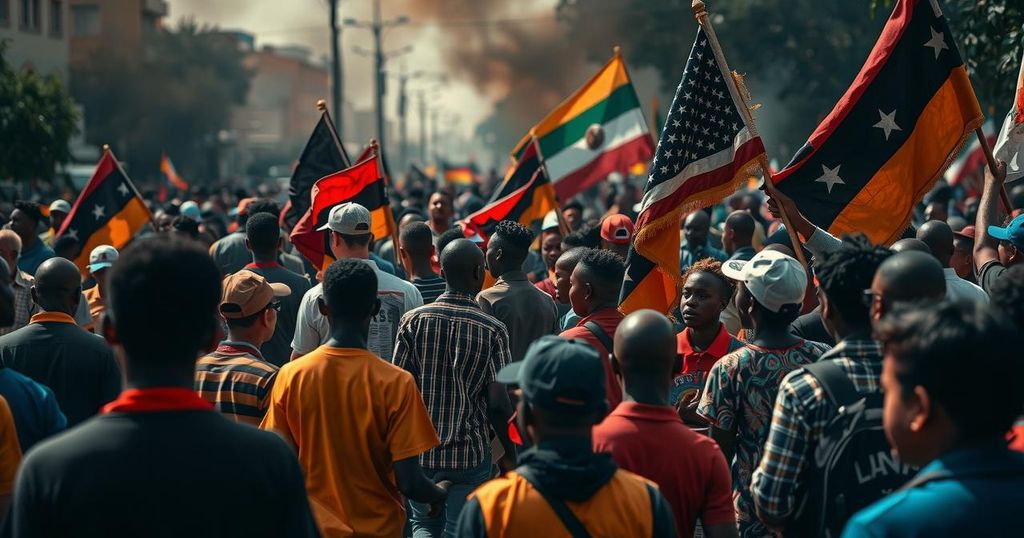World news
AFRICA, AIRSTRIKES, BASSIROU DIOMAYE FAYE, DEMOCRACY ADVOCACY, JOHN MUCHUCHA, KENYA, LEADERSHIP TRANSITION, MACK, MOZAMBIQUE, POLITICAL OPPONENTS, POLITICAL SYMBOLISM, POLITICS, POWER TRANSITION, PROTESTS, REUTERS, REUTERS / ZOHRA BENSEMRA, SALL, SOUTH AFRICA, TERRORISM, YOUTH LEADER
Stella Nguyen
0 Comments
Youth Protest Movements Surge Across Africa Demanding Change and Accountability
Recent protests in Africa demonstrate a powerful surge in youth activism against corruption, high living costs, and political oppression. In Kenya, protests against a finance bill turned violent, reflecting a broader trend of young people organizing for change. Similar movements have occurred in Senegal, Uganda, Mozambique, and Zimbabwe. These developments indicate a critical shift in the continent, as the majority youth population seeks an end to outdated leadership and for their voices to be heard.
Across Africa, youth-driven protests are increasingly resonating amid widespread calls for reform. In Kenya, thousands of young demonstrators recently mobilized against a new finance bill, culminating in tragic violence that resulted in at least 39 fatalities due to perceived police brutality. This uprising joins a larger movement of youth-led protests emerging from countries like Nigeria and South Africa, where young people demand accountability and governmental responsiveness to their needs, particularly in the face of corruption and rising living costs.
Further illustrating this trend, protests in Senegal unfolded as young citizens rallied against delays to presidential elections, which they viewed as a direct affront to democracy. Similarly, in Uganda, climate activists sought to protect their environment from threatening projects, only to encounter harassment and repression from authorities. Meanwhile, the death of a popular rapper in Mozambique sparked protests against social injustices and corruption, demonstrating the powerful impact of youth voices in the region.
With 70% of Africa’s population under 30, these movements reflect a broader desire for transformation, contrasting sharply with the aging leadership typical across the continent. As these young people rise in activism, they highlight the disillusionment with established political structures, asserting their demand for change and the right to a more equitable future. The outcomes of these protests remain closely monitored as they signal a pivotal shift in the African socio-political landscape.
The current wave of protests across Africa marks a significant mobilization of the continent’s youth, who constitute a major demographic. With 70% of the population under the age of 30, young people are increasingly vocal against issues such as corruption, economic hardships, and governmental accountability. Various movements in countries like Kenya, Nigeria, South Africa, Uganda, Mozambique, and Zimbabwe illustrate a shared frustration with outdated political powers and a demand for democratic reform. These protests have not only shaped national discourse but also attracted international attention, underscoring the urgency for systemic change in governance.
In conclusion, the youth-led protest movements characterized by recent events in Kenya and across Africa signify a critical emergence of young voices demanding reform and accountability in governance. The collective actions reveal a widespread discontent with existing political structures that often overlook the aspirations and welfare of younger generations. Given the growing population of politically active youth, these movements are likely to reshape Africa’s sociopolitical landscape in the years to come, as they continue to advocate for significant change.
Original Source: www.context.news




Post Comment